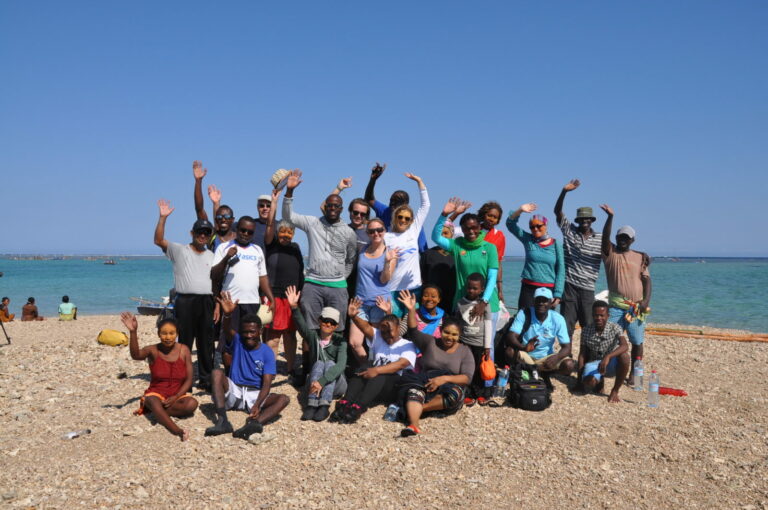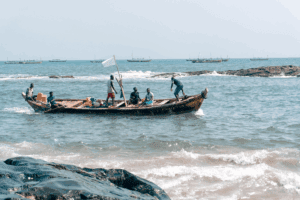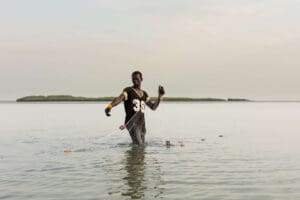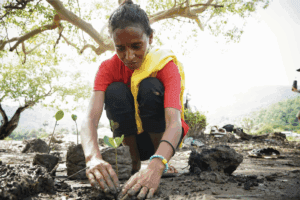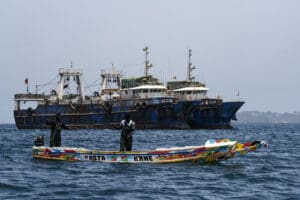Every journey, the cliché goes, begins with a small step.
We took our first more than a decade ago, in a remote corner of southwest Madagascar, when we supported the village of Andavadoaka to temporarily close a small reef to octopus fishing to see if this might boost declining catches.
This small step soon became a giant leap for marine conservation in Madagascar. When the closure was lifted, fishers caught far larger octopus — and far more of them. So impressive were the results, that before long, nearby villages were establishing closures of their own, and starting to think about more ambitious marine conservation efforts. Within three years, Andavadoaka had joined forces with two-dozen neighbours to create a locally managed marine area (LMMA) in which reserves permanently off limits to all fishing were established and practices such as poison fishing were banned.
This use of short-term closures as a “foot in the door” for conservation has since grown along many hundreds of kilometres of Madagascar’s coastline, reaching around 150,000 people and inspiring a grassroots marine management movement that has seen 65 LMMAs established to date, covering 11% of the island’s seabed.
Buoyed by the success of this approach, we’ve begun to strive for impact at scale, embarking on a new journey to reach three million people across the world’s tropical coastal regions, by supporting partners to implement approaches that have worked for us, including octopus closures. We’ve found that community exchanges and learning visits are a powerful way to build engagement and momentum in community led small-scale fisheries management.
Last month, more than a decade on from the first closure, we took our first major step on this new journey, one that we hope will become a second giant leap for marine conservation in the Western Indian Ocean and beyond.
We invited new partners from Zanzibar, Mozambique, Mayotte, Kenya and India to Madagascar to learn more about our work, to see the closures and LMMAs for themselves, and to use these experiences to spark new octopus closures and LMMA movements back home.
Over the course of 10 days, representatives from five new partner organisations visited key field sites in Madagascar, accompanied by several octopus fishers. The partners were supported not only by BV field staff in Madagascar, but also by technical specialists from the UK, Belize, Mozambique, and Indonesia. And because the visit coincided with the reopening of several octopus reserves, we were able to witness the increased catches that resulted, as well trying our hands at spearing octopus.
During our time in the field, we also snorkeled at one of the permanent reserves, visited BV’s sea cucumber and seaweed farms, and attended a full-day training workshop, before saying fond farewells and heading for home, armed with new knowledge and experiences to help scale and sustain closures in new places, and committed to a nascent octopus closure practitioner network to share best practice and accelerate progress.
As we return to our communities and begin the tricky practice of implementation, we hope others will join our emerging movement. Many of the 1.3 billion people who live around our tropical coasts depend on fisheries for their livelihoods and on seafood as a primary source of protein.
By themselves, the closures and the community-managed protected areas that can follow will not be enough to overcome the complex environmental and social challenges that lie ahead. But they are undoubtedly a step towards a more hopeful future for fragile coastal ecosystems, and those who depend upon them for survival.
Special thanks to the new partners for coming to see us in Madagascar: marinecultures.org, Kuruwitu Conservation and Welfare Association, Centre for Action Research on Environment, Science and Society, Mayotte Marine Park and WWF Mozambique.
Find out more about our work supporting partners

